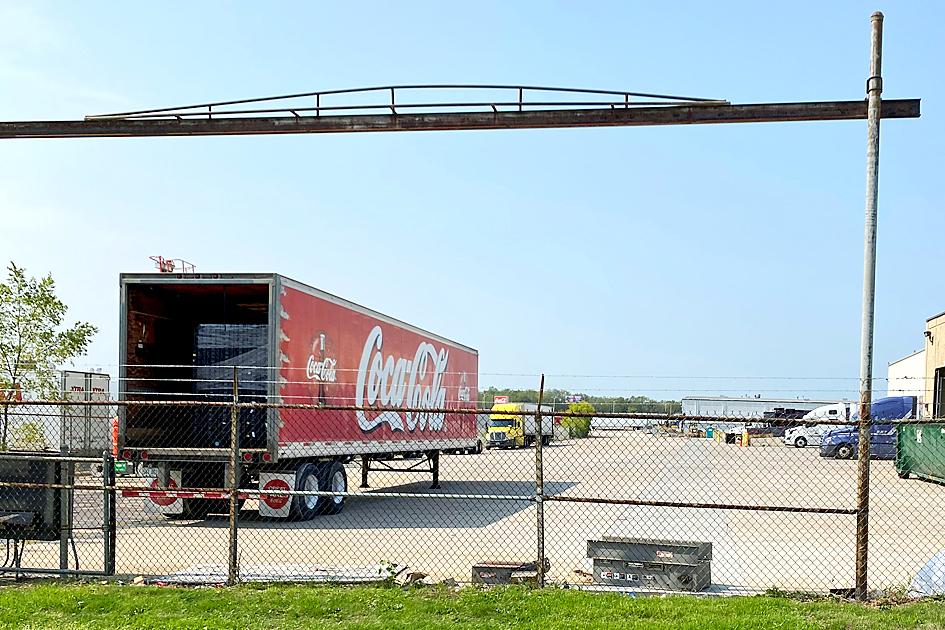Coca-Cola Co is planning to sell a stake in its South African bottling unit to local investors in a deal worth about 10 billion rand (US$674 million), in line with an agreement with local regulators, people familiar with the matter said.
The move would help the US drinks giant comply with a South African policy that prescribes minimum holdings in companies for blacks and other groups that faced economic discrimination under apartheid, the people said.
The deal was a condition of Coca-Cola’s 2016 buyout of former partner SABMiller PLC, now part of brewer Anheuser-Busch InBev NV, they said.

Photo: Reuters
Coca-Cola South Africa on Friday said that its broad-based black ownership would be increased to 20 percent, without giving detail on the value of the deal.
Employees would have control of an approximate 15 percent stake, up from 5 percent, with the balance owned by outside investors.
The plan was revised from an earlier proposal to sell a larger stake and has been agreed with regulators, a Coca-Cola spokeswoman said.
Rothschild & Co is an adviser on the deal, the people familiar with the matter said.
Coca-Cola Beverages Africa Co is based in the coastal town of Port Elizabeth and serves 12 countries, including Kenya, Ethiopia and Ghana, according to its Web site.
It accounts for about 40 percent of the Atlanta-based company’s drinks sold on the continent.
The value of the entire business is about 45 billion rand, the people said, meaning that the new investors are getting a discounted price.
The deal would help benefit employees and other partners as well as non-white investors, although the exact structure is yet unclear, they said.

BYPASSING CHINA TARIFFS: In the first five months of this year, Foxconn sent US$4.4bn of iPhones to the US from India, compared with US$3.7bn in the whole of last year Nearly all the iPhones exported by Foxconn Technology Group (富士康科技集團) from India went to the US between March and last month, customs data showed, far above last year’s average of 50 percent and a clear sign of Apple Inc’s efforts to bypass high US tariffs imposed on China. The numbers, being reported by Reuters for the first time, show that Apple has realigned its India exports to almost exclusively serve the US market, when previously the devices were more widely distributed to nations including the Netherlands and the Czech Republic. During March to last month, Foxconn, known as Hon Hai Precision Industry

Taiwan Semiconductor Manufacturing Co (TSMC, 台積電) and the University of Tokyo (UTokyo) yesterday announced the launch of the TSMC-UTokyo Lab to promote advanced semiconductor research, education and talent development. The lab is TSMC’s first laboratory collaboration with a university outside Taiwan, the company said in a statement. The lab would leverage “the extensive knowledge, experience, and creativity” of both institutions, the company said. It is located in the Asano Section of UTokyo’s Hongo, Tokyo, campus and would be managed by UTokyo faculty, guided by directors from UTokyo and TSMC, the company said. TSMC began working with UTokyo in 2019, resulting in 21 research projects,

Ashton Hall’s morning routine involves dunking his head in iced Saratoga Spring Water. For the company that sells the bottled water — Hall’s brand of choice for drinking, brushing his teeth and submerging himself — that is fantastic news. “We’re so thankful to this incredible fitness influencer called Ashton Hall,” Saratoga owner Primo Brands Corp’s CEO Robbert Rietbroek said on an earnings call after Hall’s morning routine video went viral. “He really helped put our brand on the map.” Primo Brands, which was not affiliated with Hall when he made his video, is among the increasing number of companies benefiting from influencer

Quanta Computer Inc (廣達) chairman Barry Lam (林百里) yesterday expressed a downbeat view about the prospects of humanoid robots, given high manufacturing costs and a lack of target customers. Despite rising demand and high expectations for humanoid robots, high research-and-development costs and uncertain profitability remain major concerns, Lam told reporters following the company’s annual shareholders’ meeting in Taoyuan. “Since it seems a bit unworthy to use such high-cost robots to do household chores, I believe robots designed for specific purposes would be more valuable and present a better business opportunity,” Lam said Instead of investing in humanoid robots, Quanta has opted to invest